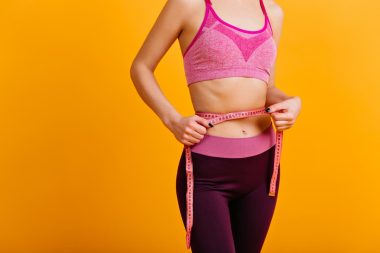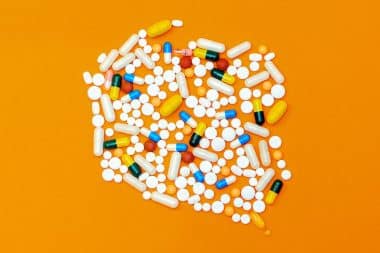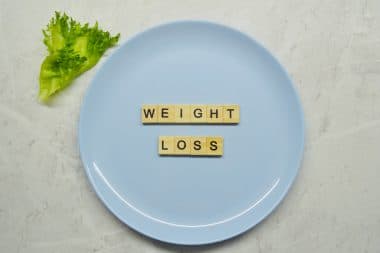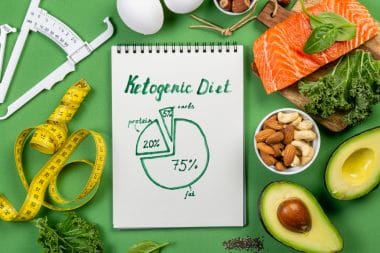Everywhere you look, it seems as though someone is announcing another detox diet that will give you the extraordinary results you need to make your diet successful. There are juice cleanses, general detox diets, and fasts from grains and sugar, all of which are designed to purge your body of toxins and other buildup and help you develop the slim, healthy physique you’ve always wanted. Knowing how to make a detox diet work for you, however, starts with picking the right one.
What’s the Point of a Detox?
Many detox diets make extraordinary health claims that attempt to convince you that they can do the impossible. “You’ll lose ten pounds in a week!” “Jump start your diet with solid weight loss!” “Feel healthier and more energetic than ever as you remove all the toxins from your system!” Many of these claims, however, are either a) based on individual preferences or b) entirely made up. There are, however, several things that a short-term detox can accomplish for you.
- Jump start a healthy eating routine by detoxing from sugar and junk food. It takes 3 days to quiet general cravings and as much as 30 days to stop yourself from wanting sugar, white flour, and junk food completely. A detox diet is a great way to get that started!
- Detox diets give you a good idea of the foods that you should be eating. You’ll develop a larger repertoire of smoothies, healthy soups, and fruit and vegetable recipes that will substitute for your previous unhealthy meals and snacks.
- Develop great habits, like drinking plenty of water and exercising regularly, that will help you on your fitness journey.
- Severely restrict your eating habits so that when you return to your normal patterns, you’ll be less likely to overindulge.
- Boost your energy levels by increasing your healthy food consumption, rather than binge eating unhealthy foods.
- Get rid of excess waste in your body as you consume plenty of fiber, then maintain a healthy eating plan that will keep it from building back up.
- Substantially reduce bloat and water weight, which can be great for short-term weight loss–like, for example, if you’re just trying to fit into a special outfit for a big event.
- Clear your mind by getting rid of excess caffeine and sugar, which can make it easier for you to make healthy choices going forward.
These benefits aren’t quite what many popular detox diets would have you believe. It’s not magical weight loss. In fact, much of the weight that you lose during a detox is water weight, which means that it will come right back on as soon as you resume normal eating. Getting the sugar, caffeine, and processed, chemical-based foods out of your system, however, does have plenty of benefits that you’ll continue to reap for the duration of your diet.
Types of Detoxes
There are several popular types of detox diets. Some are very rigid, requiring the dieter to consume nothing more than liquids–preferably fruit-based smoothies. Others are more lenient. Depending on the type of diet you’re following, the results you see may vary.
Juice cleanses restrict the dieter to juices and smoothies made primarily from fruits and vegetables for between three and ten days, depending on the cleanse. They’re packed full of nutrients, including plenty of vitamins and minerals that your body needs to stay healthy. As an added benefit, juice cleanses are also a great way to “reset” yourself so that you’re no longer craving caffeine and sugar. The biggest problem with juice cleanses, however, is that they contain very little protein–an essential ingredient for supplying your body with energy, healing from injuries, and keeping yourself moving.
Soup detoxes serve approximately the same purpose as a juice cleanse: they break up your diet, provide you with plenty of nutrient-rich meal substitutions, and break the unhealthy eating cycle. Soup cleanses often feel more satisfying than juice cleanses because they make you feel more full and can contain solids, depending on your soup cleanse of choice. There are plenty of soup recipes to choose from, and as an added bonus, you can add protein, like black beans and lentils, to help keep your energy levels high. Soup detoxes are usually a quick fix option: in general, they last about 3 days.
Protein detoxes allow the dieter to eat a mostly normal diet, yet avoid key foods that could cause issues with their body. The biggest culprits, of course, are sugar and caffeine, but protein detoxes may also avoid simple carbs, processed food, and other negative influences. These detoxes take longer to be as effective as many people would like: protein detoxes typically last for around 30 days.
Grain detoxes take the gluten free diet craze and takes it to the next level: removing all grains from the diet completely. That means it’s not just wheat and barley to be avoided. The grain detox removes rice, corn, oatmeal, and other grains from the diet completely. Typically, grain detoxes aren’t designed as a short-term solution. Rather, they’re a long-term dietary change that completely removes this type of food from your diet.
Undertaking a Detox Diet
If you’re going on a detox diet, make sure you’re smart about it! There are several things you should take into consideration before jumping into any weight loss program, but that’s particularly true if you’re going to leap into the kind of intense restriction that comes along with many detox programs.
Understand your calorie needs. How many calories do you actually burn in a day? This handy calculator will give you a good idea of your basal metabolic rate–that is, how many calories your body burns just to keep you alive and functioning on a daily basis. Restricting your calories too strictly, even for a brief detox, can negatively impact your overall metabolic rate and kick your body into starvation mode. Being tired, cranky, and hungry doesn’t help your body accomplish anything! Instead, adjust your detox plans to take your calorie needs into consideration.
Think about your goals. Are you undertaking a detox just to kick-start a new healthy eating plan, or are you trying to lose weight? Are you attempting to identify an allergy, or just get used to eating less sugar and processed food? Make your goals clear at the beginning of your program so that you understand how to measure your success on the other side.
Research the nutrients your body needs. Will you be removing vital nutrients from your diet in the hope of accomplishing something drastic? It might be worth reconsidering your program. Your ultimate goal is a strong, healthy body that will carry you through all of your activities, not just a brief detox.
Who Shouldn’t Do a Detox Diet?
There are several people who shouldn’t go through a detox diet. Obviously, any drastic shift to your diet should be discussed with your doctor before you take the leap. Some people, however, should avoid detox diets altogether.
Pregnant women can choose clean eating, but should never drastically restrict their caloric intake or eliminate particular food groups from their diet.
Nursing mothers need more calories than women in other stages of life. Undertaking a detox or cleanse during this period could restrict vital calories and cause milk production to dip, which would result in baby not getting the nutrients they need.
Individuals with a history of eating disorders should avoid detox diet plans or undertake them only under the supervision of a doctor or other healthcare professional. The drastic calorie restriction and severe eating schedule could cause problems or kick-start mental cycles that could lead to a relapse.
Individuals with serious health concerns should always consult a doctor before undertaking a serious dietary change.
Preparing for a Detox
As you prepare for a detox, take a few simple steps to ensure that you’re fully prepared for the next few days or weeks.
- Stock your cabinets with the healthy food that you’ll be eating during your detox. Make sure that you have plenty of alternatives available that will help encourage you to keep it up when a craving hits.
- Look up recipes for soups, smoothies, or juices that will meet your specific dietary needs.
- Don’t binge! It can be tempting to go for “one last hurrah” before you kick off your detox. Unfortunately, this is toxic to your ultimate goals and can actually lead to weight gain instead of loss.
- Understand your body’s signals. If you feel down, like you’re dragging, or ready to eat everything in sight, you probably aren’t consuming enough calories during your cleanse.
Potential Side Effects
Any major dietary change has the ability to seriously impact your body. During your detox, you may experience a number of side effects, including:
- Low energy levels or irritability due to low calorie consumption
- Headaches due to removing things like sugar and caffeine that your body is used to having on a daily basis
- Disrupted sleep
- Digestive problems, including frequent or loose stools or diarrhea
If you experience a rash, flu-like symptoms, or vomiting during your detox, take it as a sign that your body isn’t ready for that level of intensity. Back off and try again later to avoid making yourself extremely sick.
There are plenty of advantages to detox diets, but they aren’t without their risks. By paying attention to your body, seeking the advice of a healthcare professional if needed, and ensuring that your body gets the calories and nutrients it needs throughout the process, you can move on to a more successful detox that will help you achieve your goals. Choose the detox plan and duration that works for you and enjoy the benefits today.








Reply